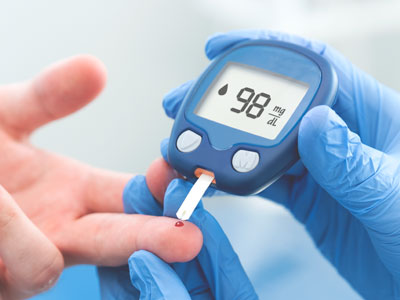Diabetes Management

What is diabetes?
Diabetes is a disease in which your blood glucose, or blood sugar, levels are too high. Glucose comes from the foods you eat. Insulin is a hormone that helps the glucose get into your cells to give them energy. With type 1 diabetes, your body does not make insulin. With type 2 diabetes, the more common type, your body does not make or use insulin well. Without enough insulin, the glucose stays in your blood.
What is prediabetes?
You can also have prediabetes. This means that your blood sugar is higher than normal but not high enough to be called diabetes. Having prediabetes puts you at a higher risk of getting type 2 diabetes.
Why should I be concerned about diabetes?
Over time, having too much glucose in your blood can cause serious problems. It can damage your eyes, kidneys, and nerves. Diabetes can also cause heart disease, stroke and even the need to remove a limb.
How is diabetes diagnosed?
Blood tests can show if you have diabetes. One type of test, the A1C, can also check on how you are managing your diabetes.
How is diabetes managed?
Managing your blood glucose, as well as your blood pressure and cholesterol, can help prevent the health problems that can occur when you have diabetes. Exercise, weight control and sticking to your meal plan can help control your diabetes.
Your healthcare team at Piedmont Internal Medicine will work with you can create a diabetes care plan to manage your diabetes. Your self-care plan may include these steps:
- Manage your ABCs - A1C (blood glucose), blood pressure, cholesterol levels - and stop smoking.
- Follow your diabetes meal plan.
- Make physical activity part of your daily routine. Ask your team what activities may be right for you.
- Take your medicine. If prescribed, medication must be taken even if you're feeling good.
- Check your blood glucose levels. If needed, your provider may recommend daily glucose monitoring.
- Work with your health care team. If necessary, your team may include an endocrinologist, a registered dietician, or other specialists.
- Cope with your diabetes in healthy ways. Control stress, get enough sleep, ask for help if you're feeling down.

